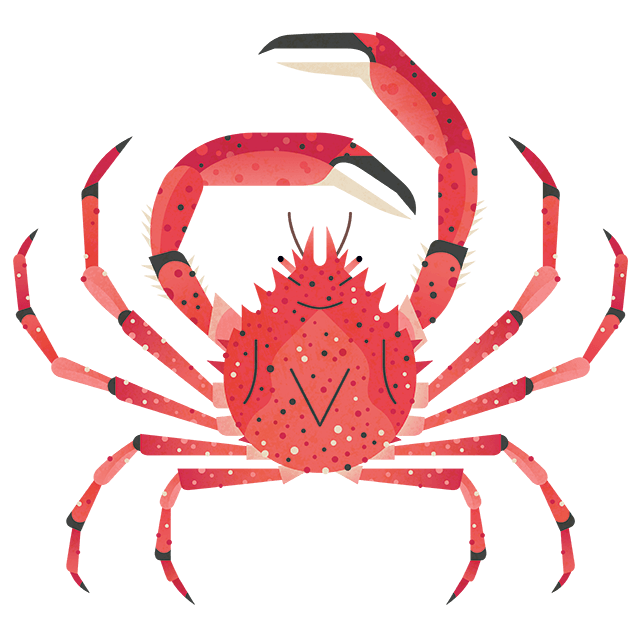Press Release: Good Fish Guide ratings update
Press Release
- Best Choice seafood now includes English farmed scallops and English Channel sprat
- UK squid, some American lobster and ling join the charity’s Fish to Avoid list
The Marine Conservation Society has updated its ratings on the Good Fish Guide, sharing what seafood is a green rated Best Choice and what joins the red list as Fish to Avoid.
Best Choice seafood has the lowest impact on our seas, with the red list consisting of those that cause the most environmental damage, or where population sizes are dangerously low.
English farmed scallops and English Channel sprat (which often appears on menus as whitebait) join the Best Choice list. Other green rated seafood retaining a Best Choice accolade include hake, hand dived scallops, Icelandic coley, and plaice caught in various locations around the English coast.
Best choice hand-dived scallops from Lyme Bay and the West of Scotland come from populations that are healthy, and the level of fishing isn’t likely to make them fall to unsafe levels. Hand-diving is a sustainable option because there is no bycatch of other species, and it has very little impact on the seabed. Farmed scallops are also a low-impact choice because they don’t need any food or inputs like antibiotics, so there are no harmful chemicals making their way into the sea.
The latest ratings update for the Good Fish Guide highlights the impact of poorly managed fisheries on the state of UK seas, as a number of new ratings went straight onto the charity’s Fish to Avoid list. However, there are glimmers of hope, with 20 ratings improving in the latest update, showing that where good management exists, it is possible to make improvements.
Good Fish Guide
Our Good Fish Guide has all the advice you need to choose sustainable seafood. Start by searching for your favourite seafood below.

Raymond Blanc, owner of Brasserie Blanc who have selected the Marine Conservation Society as their charity partner, said: “Everyone can make a difference: whether you are a restauranteur or cooking seafood at home, use the Good Fish Guide to help make your choices more sustainable. It’s so important we avoid choosing seafood rated red on the Guide, and there are easy swaps that everyone can make that will make a difference.
“It’s vital that we only take what is sustainable from the ocean in order to protect nature and all of the wonderful marine life that we share our planet with.”
The Good Fish Guide’s Fish to Avoid list has 9 new additions, including some American lobster and UK squid.
Concerns about American lobster relate to the critically endangered Northern right whale, which can get tangled in the ropes from lobster pots. With only a few hundred left, even the death of one whale could increase the threat to the species. Meanwhile, squid populations in the UK are declining in many areas and there is no management in place at all to help protect them.
Top swaps
Jack Clarke, Sustainable Seafood Advocate, said: “We’re all too often opting for what we call the big 5: cod, haddock, salmon, tuna and prawns. Not only is that really boring, it's a pretty bad idea. It puts a lot of pressure on a handful of wild stocks and creates demand that drives unsustainable fishing and farming practices. That’s why we want more people to try swapping out the most commonly-bought seafood for lesser-known, more sustainable, options.”
The Good Fish Guide is championing some top sustainable swaps for the most commonly chosen seafood in the UK. 80% of the seafood consumed in the UK is made up of just five species: cod, haddock, salmon, tuna and prawns. Recipes which call for fish like cod and haddock could instead be replaced with hake - a meaty white fish, caught in the UK, with impressive sustainability credentials.
Instead of salmon, the Good Fish Guide recommends farmed trout. Many top chefs are already making the swap from salmon to trout, it’s versatile, meaty and flavourful.
Farmed shellfish, mussels and oysters are Best Choice according to the Good Fish Guide. Farmed, rope-grown mussels actually benefit UK seas, filtering out impurities and having very little impact on ocean habitats.
For more information on green and red rated seafood, please visit the Good Fish Guide.

